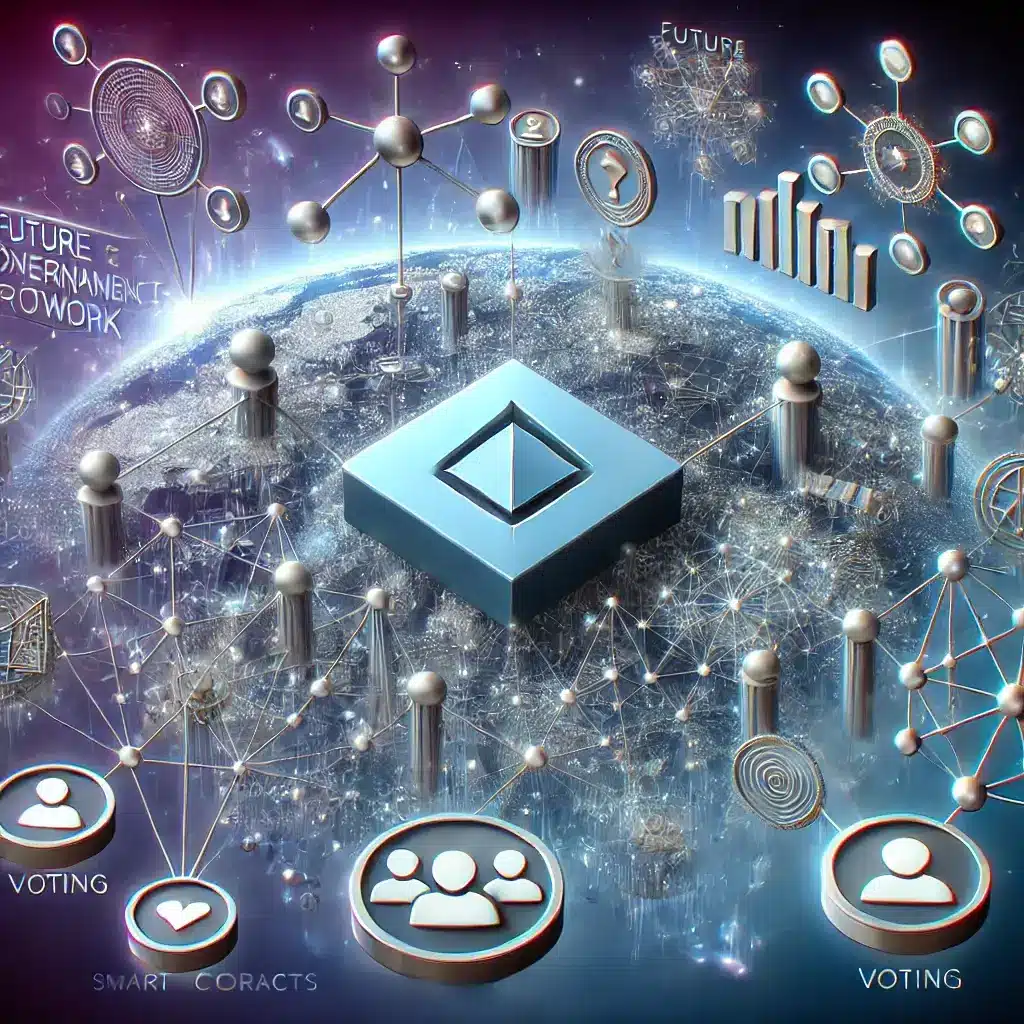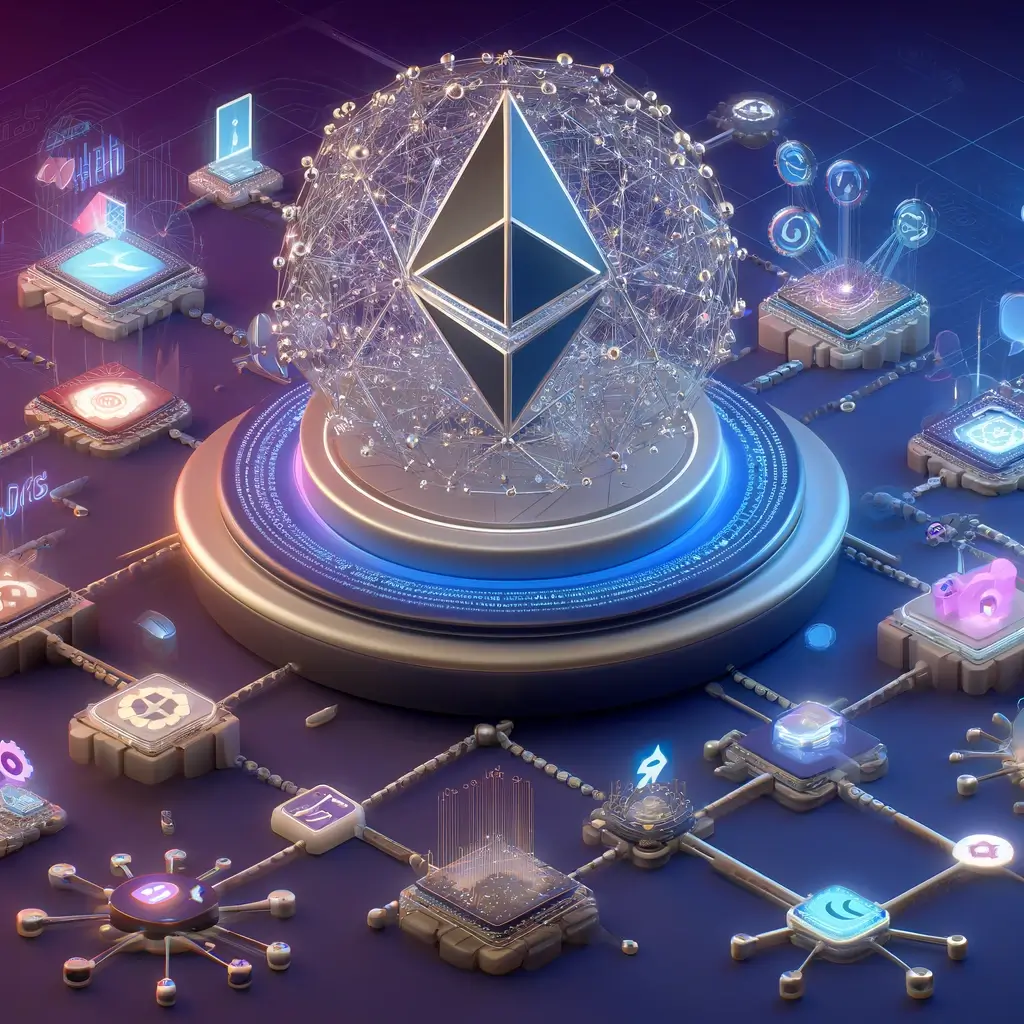The Future of Decentralized Autonomous Organizations (DAOs)
Decentralized Autonomous Organizations (DAOs) are emerging as a transformative force in governance, finance, and digital communities. As blockchain technology continues to evolve, DAOs are poised to play a pivotal role in reshaping how organizations operate, how decisions are made, and how resources are allocated. This article delves into the future of DAOs, exploring their potential impact and what lies ahead for these decentralized entities.
1. Understanding DAOs: A Brief Overview
Overview:
DAOs are blockchain-based organizations governed by smart contracts, which automate decision-making processes without the need for centralized leadership. Members of a DAO typically hold governance tokens that allow them to vote on proposals, budgets, and other critical decisions. This decentralized approach ensures transparency, security, and community-driven governance.
How DAOs Differ from Traditional Organizations:
Unlike traditional organizations that rely on a hierarchical structure, DAOs operate on a flat, decentralized model where every member has a say in the organization’s direction. Decisions are made collectively, with smart contracts executing agreed-upon actions automatically, eliminating the need for intermediaries.
Examples of Prominent DAOs:
- MakerDAO: A decentralized finance (DeFi) project that governs the DAI stablecoin, allowing users to issue and manage loans without intermediaries.
- Uniswap: A decentralized exchange (DEX) that is governed by its community through the UNI governance token, enabling users to propose and vote on protocol upgrades.
Why This Matters:
The decentralized nature of DAOs empowers communities by giving them direct control over the governance and operations of an organization. This shift towards community-driven decision-making has the potential to disrupt traditional business models, making organizations more transparent and accountable.
2. The Potential of DAOs in Governance
Overview:
One of the most promising applications of DAOs is in the realm of governance. By enabling decentralized decision-making, DAOs have the potential to revolutionize how communities, corporations, and even governments operate.
How DAOs Enhance Governance: DAOs can be used to manage public goods, coordinate large-scale projects, and even govern entire ecosystems. Because decisions are made collectively and recorded on a transparent blockchain, DAOs can reduce corruption and increase trust in governance systems.
Examples:
- Aragon: A platform that allows users to create and manage their own DAOs, providing tools for decentralized governance and project management.
- Colony: A DAO platform focused on decentralized collaboration, allowing teams to manage projects, allocate resources, and make decisions without a central authority.
Why This Matters:
As DAOs gain traction, they could be applied to a wide range of governance challenges, from managing local communities to overseeing global organizations. The transparency and accountability provided by blockchain technology could make DAOs a preferred model for governance in the future.
3. DAOs in Finance: Decentralizing Investment and Asset Management
Overview:
In the financial sector, DAOs are emerging as a powerful tool for decentralizing investment and asset management. By pooling resources and making collective investment decisions, DAOs can democratize access to financial opportunities and reduce reliance on traditional financial institutions.
How DAOs are Transforming Finance: Investment DAOs allow members to pool funds and invest in projects or assets collectively. Decisions on where to allocate capital are made through a democratic voting process, with profits distributed according to the number of tokens held by each member.
Examples:
- The LAO: A venture capital DAO that invests in early-stage blockchain projects, allowing members to participate in investment decisions and share in the returns.
- MetaCartel Ventures: A DAO that funds and supports early-stage decentralized applications (dApps) and projects, with a focus on community-driven investment.
Why This Matters:
DAOs in finance have the potential to lower the barriers to entry for investment, making it easier for individuals to participate in funding projects and earning returns. This democratization of finance could lead to a more inclusive and equitable financial system.

4. DAOs and Digital Communities: Building the Future of Online Collaboration
Overview:
Beyond finance and governance, DAOs are playing a crucial role in the development of digital communities. By providing a decentralized framework for collaboration, DAOs enable online communities to self-organize, fund projects, and make collective decisions.
How DAOs Empower Digital Communities: DAOs allow members of digital communities to pool resources, coordinate efforts, and fund initiatives without relying on centralized platforms or intermediaries. This decentralized approach fosters greater engagement and ownership among community members.
Examples:
- Gitcoin: A DAO that funds open-source software development through community-driven grants and bounties, supporting the growth of the open-source ecosystem.
- Friends With Benefits (FWB): A social DAO that combines the benefits of a decentralized community with real-world social events, creating a hybrid digital-physical community.
Why This Matters:
DAOs offer a new model for organizing digital communities, one that is more transparent, inclusive, and aligned with the values of its members. As digital communities continue to grow, DAOs could become the foundation for the next generation of online collaboration.
5. Challenges and Opportunities for DAOs
Overview:
While DAOs offer numerous benefits, they also face challenges that could impact their future development. Understanding these challenges is crucial for anyone looking to participate in or build a DAO.
5.1 Legal and Regulatory Uncertainty
Key Challenge:
The legal status of DAOs is still unclear in many jurisdictions, making it difficult for these organizations to operate within existing legal frameworks. This uncertainty can pose risks for DAO members, particularly in terms of liability and regulatory compliance.
Potential Solutions:
As DAOs become more widespread, there is likely to be increased pressure on regulators to create legal frameworks that accommodate these organizations. In the meantime, DAOs can mitigate legal risks by incorporating in crypto-friendly jurisdictions and clearly defining the roles and responsibilities of their members.
5.2 Scalability and Security
Key Challenge:
As DAOs grow in size and complexity, they face challenges related to scalability and security. Ensuring that large DAOs can operate efficiently without compromising on security is a critical issue that needs to be addressed.
Potential Solutions:
To address scalability, DAOs can implement layer 2 solutions or sidechains that allow for faster and cheaper transactions. Additionally, improving smart contract security through audits and bug bounties can help prevent vulnerabilities from being exploited.
5.3 Community Engagement and Governance
Key Challenge:
For DAOs to succeed, they need active and engaged communities. However, maintaining high levels of participation and preventing governance attacks, where a small group of members gains disproportionate control, can be challenging.
Potential Solutions:
Implementing voting incentives, fostering a strong community culture, and designing robust governance mechanisms that prevent centralization of power are essential for the long-term success of DAOs.
Conclusion
The future of DAOs is filled with potential, offering new models of governance, finance, and community-building that are decentralized, transparent, and inclusive. As blockchain technology continues to evolve, DAOs are likely to play an increasingly important role in shaping the future of organizations across various sectors. However, to realize this potential, challenges related to legal uncertainty, scalability, and community engagement must be addressed. As these issues are resolved, DAOs could become a cornerstone of the digital economy, transforming how we work, invest, and collaborate.
For more insights and educational resources on industry trends, visit our Industry Insights and Trends section.
Stay Updated
For the latest updates on DAOs and their future impact, follow us on:
- Twitter: https://twitter.com/FreeCoins24
- Telegram: https://t.me/freecoins24
Stay informed with the latest strategies and insights in the world of DAOs and blockchain at FreeCoins24.io.
Special Offer
Interested in exploring DAOs further? Sign up on Bybit today and claim up to $30,000 in deposit bonuses. Start trading with confidence on a platform trusted by millions.

















